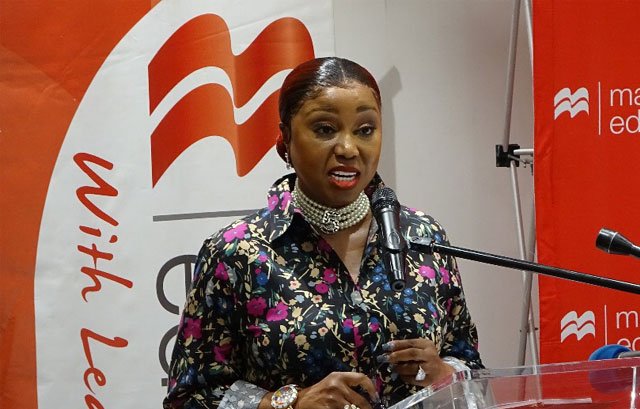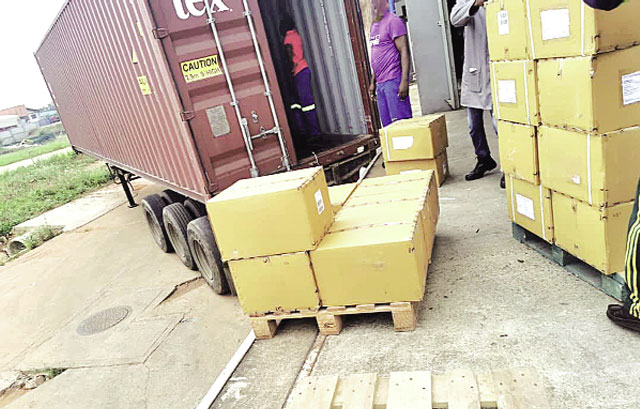By Mike Drew | 2020-01-28

Prime Minister Ambrose Dlamini and his Cabinet, having now returned from their five-day retreat in Pigg’s Peak, it is anticipated that, in addition to the thorny issue of paternity, the quality and timing of the communications issued by some of the Cabinet ministers in 2019, will have been high on the agenda too.
The recent communications on the China visa controversy might suggest otherwise.
Whilst the prime minister, may be keen to discourage speculation and misinformation, it is respectfully suggested that his statement was merely a holding exercise.
In the absence of any clear rationale from the Chinese government for the unexplained and sudden alteration to the visa process for applications received from Emaswati citizens, certain facts would seem to be irrefutable. The MPs unsanctioned so-called ‘familiarisation tour’ to Mainland China last year, clearly did not have the desired outcome.
Minister of Foreign Affairs and International Cooperation Thuli Dladla was clearly caught off-guard by the change in the visa application arrangements for Emaswati citizens effective from January 10, 2020.The fact that Emaswati citizens can now only have their visa applications processed through the Chinese Embassy in Pretoria, would hardly seem to be a cause for celebration.
Some traders seeking to replenish their stock after the festive season, indicating that they are still being turned away in Pretoria, despite the minister’s assurances. With a Chinese civil servant being quoted as saying that “the situation is very bad and China does not want any dealings with Eswatini.”
In the absence of any bi-lateral relations or even a trade mission, Mainland China has now clearly decided to turn the screw and it does not take a genius to work out the root cause.
The Kingdom of Eswatini remains the only political ally of the Republic of China (Taiwan) on the African continent.
A country with whom the kingdom has enjoyed unbroken diplomatic ties, cordial relations and economic cooperation since Eswatini gained its independence in 1968 – and long may that continue.
But, is there now a need to re-evaluate the present trading relationship?
The current political tensions between Taiwan and Mainland China and its desire for adoption of the “One China” Policy is supported by the UN Resolution 2758.
Mainland China is now clearly seeking to de-stabilise that long-standing relationship. If not through force by invading Taiwan then by a different but equally effective means. Since the Taiwanese President Tsai Ing-wen took office in 2016, a total of six countries have switched allegiance from Taipei to Beijing.
Under-developed
The recent loss of the Solomon Islands leaves Taiwan formally recognised by only 16 countries, primarily small, under-developed countries in Central America and the Pacific, but which also includes the Kingdom of Eswatini.
The Eswatini government, having demonstrated such a high level of visible support for Taiwan during the Independence Day celebrations last year, the writer anticipated a much swifter response from Mainland China.
So, where does the Eswatini government go from here?
Firstly, to recognise and acknowledge the fact that it now does have a serious problem. It appears we have little choice but engage with Mainland China to seek a common ground to prevent the situation escalating.
In the absence of formal diplomatic ties, the writer would suggest that informal communication channels could be opened through a third party intermediary such as the World Trade Organisation or through the United Nations.
A strategy that would be welcomed by Business Eswatini, who have publicly urged the government to be more pro-active in seeking a solution to the visa issue.
According to Commerce, Industry and Trade Minister Manqoba Khumalo, Mainland China is our second largest trading partner after South Africa so, the economic implications for big business and SMEs are significant.
The globalisation of trade is changing rapidly and in the writer’s opinion, the issue of bilateral relations and the opening of a trade mission needs now to be openly discussed with Mainland China, whilst still being committed to maintaining strong diplomatic ties with the Republic of China (Taiwan).
The question needs to be asked whether the current visa issue actually presents an opportunity to carry out a total strategic review and mapping of all the kingdom’s global trading relationships going forward to include Mainland China.
Whilst the Kingdom of Eswatini has received much needed and welcome support from Taiwan over the years in the area of energy, health, education, university bursaries and technology, is this enough to justify not looking for wider trading partners?
Over 51 years there would appear to have been very little capital investment in the kingdoms infra-structure by Taiwan. Unlike India who committed to investing in the infra-structure following President Ram Nath Kovind’s visit to the kingdom in 2018, with the building of the Royal Science and Technology Park financed by the Government of India.
Supports
The writer supports the view put forward by Sive Siyinqaba National Movement that, the kingdom needs to re-evaluate soonest its trading position with Taiwan and Mainland China, as it is clearly being left behind.
Mainland China is investing billions in Africa and the present position is clearly not sustainable.
During the China-Africa Summit in September 2018 in Beijing, the Chinese President Xi Jinping pledged US$60 billion (over E830 billion) in aid and loans to the 40 African countries who attended (Eswatini was excluded).
At the same time, the Chinese president sought to give reassurances that “China’s investment in Africa does not come with any political conditions attached …..”
Several African countries have already benefitted from large loans to fund infrastructure projects with the labour and materials also being imported from Mainland China.
For the increasingly isolated Kingdom of Eswatini, it would appear now to be the stick and not the carrot.
The net would seem to be closing. With the other members of the African Union putting their support firmly behind Mainland China, the writer wonders whether it is only a matter of time before Mainland China seeks to put further political and economic pressure on the kingdom through the African Union and SADC. In the writer’s opinion, it really is time for a radical rethink.
Alternative
So what are the alternative options? Clearly not the United States, despite the rather controversial comment recently made by the South African billionaire Patrice Motsepe that “Africa loves America. Africa loves you …”
A president who probably has other issues on his mind at the moment. Whilst the United States Ambassador to the Kingdom of Eswatini Lisa J Peterson, continues to do an excellent job in the area of HIV and AIDS awareness and gender empowerment, the current administration in Washington clearly has no interest in developing bi-lateral trade opportunities with the kingdom.
As evidenced by the unhelpful comments made by the Assistant Secretary of State for African Affairs Tibor Nagy Jr. during his press briefing following the US-Africa Business Roundtable, which took place during the 74th UN General Assembly in New York last year and his recent visit to the African continent, which did not include Eswatini.
The kingdom is clearly not on the current US administration’s radar and is not an investment partner of choice through either Trade, Investment and Development Cooperative Agreement (TIDCA) or the ‘Prosper Africa’ initiative.
The writer shares the view often stated by the minister of commerce, industry and trade that, foreign direct investment might be the way forward, to include the early implementation of the Cannabis Licensing Regulations.
But the government now needs to act very quickly and the writer’s concern is that it has all gone too quiet, which raises the question whether the political will still exists within the ministry of Health to deliver or whether the Ministry of commerce, industry and trade should now be invited to take the lead on this very important initiative.
With the appointment of the UK High Commissioner to Eswatini and the positive noises being made post-Brexit by the Foreign and Commonwealth Office in London, there is an opportunity for trade to be developed here too.
His Majesty’s official visits to both Indonesia and Russia last year would seem to confirm that there are now other options and fresh opportunities, to explore economic ties with more enlightened trading partners.
With countries that do have an appetite to engage in trade to the mutual benefit of both parties. The first ever two-day Russia-Africa Summit held at the Sochi Olympic Park on the Black Sea, was opened by the Russian President Vladimir Putin, with the theme of ‘Uncovering the Potential for Cooperation’.
As His Majesty indicated during the Summit - “We believe that Russia and Africa possess great potential for reciprocal economic benefit and building strong and lasting partnerships for sustainable economic development”.
Only time will tell, but all very positive news and such a refreshing approach from both the Indonesian and Russian governments, when compared to the negative stance being adopted by the present US administration in Washington.
share story
Post Your Comments Below

Nurses and other members of the medical staff at the Raleigh Fitkin Memorial (RFM) Hospital have ...
ATHLETICS - A true marathon indeed!
The High court has issued an order to Athletics Eswatini...

Minister of Information, Communication and Technology (ICT) Savannah Maziya says there is a criti...

The ministry of health has announced the arrival of vital medicines and medical supplies.
All material © Swazi Observer. Material may not be published or reproduced in any form without prior written permission.
Design by Real Image Internet